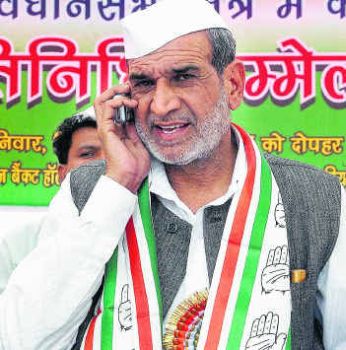New Delhi, India (August 23, 2012): Congress leader Sajjan Kumar, facing trial in a 1984 anti-Sikh violence case, today alleged in a Delhi court that CBI had “pressurised” the witnesses to depose against him, Press Trust of India (PTI) has reported today.
The news report adds that: “Advocate I. U. Khan, appearing for Sajjan Kumar and continuing final arguments before District Judge J R Aryan, said CBI had put pressure over the witnesses to depose that they had seen him allegedly instigating the mob during the violence against the Sikhs in Raj Nagar area of Delhi Cantonment here”.
“CBI had forced several witnesses to give statement against Kumar and when they refused to depose on its line, the agency dropped them. This is tainted investigation,” I. U. Khan is reported to have said in court.
According to PTI the counsel of Sajjan Kumar, an accused of Sikh Genocide 1984, referred to the statement of defence witness Baldev Raj Khanna, who had deposed in the court that CBI was putting pressure on him to say that he had seen Kumar and two other co-accused indulging in violence activities.
Citing statements of several prosecution witnesses, the counsel said they were watching the activities of violence closely, having knowledge of everything and they in their statements had not taken Sajjan Kumar’s name.
It is notable that Sajjan Kumar is facing trial along with five others – Balwan Khokkar, Kishan Khokkar, Mahender Yadav, Girdhari Lal and Captain Bhagmal – for allegedly inciting a mob against the Sikh community in Delhi Cantonment area here.
The case against Sajjan Kumar was registered in 2005 on a recommendation by Justice G. T. Nanavati Commission. CBI had filed two chargesheets against him and the other accused in January 2010.
The trial court had in May, 2010 framed charges against Sajjan Kumar and the five others under Sections 302 (murder), 395 (dacoity), 427 (mischief to cause damage to property), 153-A (promoting enmity between different communities) and other provisions of the IPC. It is notable that Genocide is not a specific crime under Indian law.

